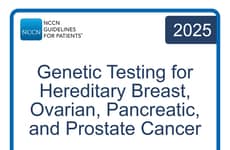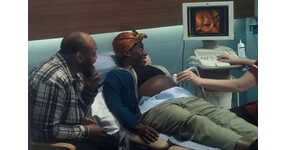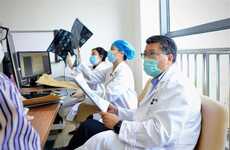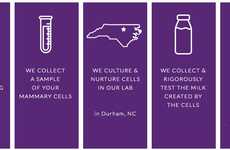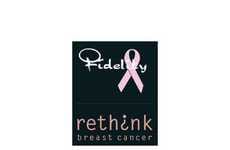
Genetically-Modified Infant Stirs Up 'Designer Baby' Concerns
Rurac Andreea — January 10, 2009 — Life-Stages
References: guardian
Yesterday, at the University College hospital in London, a woman gave birth to a baby girl that's being hailed as a 'designer baby.' She developed from an embryo that was screened specifically to ensure that it was free from the BRCA1 gene that indicates a strong possibility for breast cancer.
A female born with the BRCA1 gene has a 50-85% chance of developing breast cancer. This baby girl had a long family history of breast cancer, and in June of last year, her mother met with specialists to undergo the screening process. "We felt that, if there was a possibility of eliminating this for our children, then that was a route we had to go down," says the mother, who wishes to remain anonymous.
A female born with the BRCA1 gene has a 50-85% chance of developing breast cancer. This baby girl had a long family history of breast cancer, and in June of last year, her mother met with specialists to undergo the screening process. "We felt that, if there was a possibility of eliminating this for our children, then that was a route we had to go down," says the mother, who wishes to remain anonymous.
Trend Themes
1. Designer Baby Trend - The increasing use of genetic screening techniques to create babies free from disease-causing genes presents opportunities for personalized healthcare and targeted gene therapies.
2. Genetic Screening Trend - The use of genetic screening to identify and eliminate disease-causing genes in embryos opens up possibilities for reducing the risk of inherited diseases and enhancing the health of future generations.
3. Cancer Prevention Trend - Advancements in genetic testing and gene editing technologies offer potential for preventing hereditary diseases like breast cancer and promoting overall health and well-being.
Industry Implications
1. Healthcare Industry - The healthcare industry can leverage genetic screening techniques and personalized medicine to provide tailored treatments and preventive approaches for patients.
2. Biotechnology Industry - The biotechnology industry can further develop genetic screening technologies and gene editing tools to enable the creation of disease-free embryos, advancing the field of reproductive medicine.
3. Pharmaceutical Industry - The pharmaceutical industry can explore new avenues for developing targeted gene therapies and preventive medications based on genetic screening results, revolutionizing disease prevention and management.
0.9
Score
Popularity
Activity
Freshness



